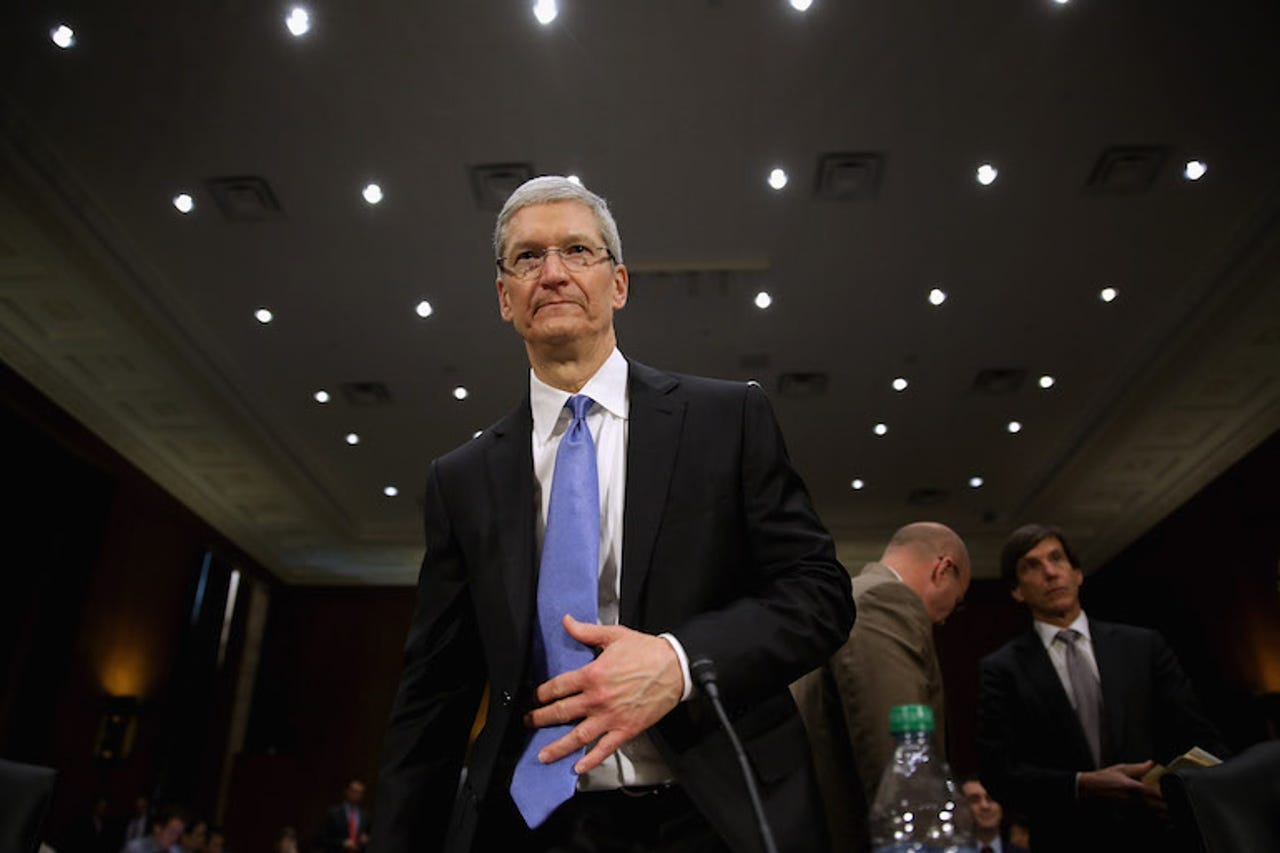Apple, FBI testify before Congress: These are the talking points


Apple's Tim Cook testify before the Senate Homeland Security Committee's in May 2013. (Image: file photo)
Four crucial players, who are set to testify on Tuesday in a congressional hearing on the encryption battle between tech companies and the government, could determine if lawmakers will take on the case.
Security
Members of the House Judiciary Committee will call key witnesses to testify in the wake of a legal case that erupted last month, when Apple was compelled by a California court to help the FBI unlock the iPhone used by one of the San Bernardino shooters.
Apple refused to comply, effectively locking out federal agents from gaining access to a device that they say may hold intelligence relating to the attack in December, killing 14 people.
The company's general counsel Bruce Sewell (statement) will testify alongside New York district attorney Cyrus Vance (statement), and Susan Landau (statement), professor of cybersecurity policy at Worcester Polytechnic.
FBI director James Comey will also testify in a separate witness panel.
Here are the main talking points you need to know.
What Apple will say
Apple's general counsel's opening remarks echo sentiments made by chief executive Tim Cook earlier this month.
The company's argument is that this won't just affect one iPhone as Comey said during a separate congressional hearing last week. The FBI director candidly said that the California case could be "instructive" for other courts. That said, not every court will jump in the prosecution's favor. A Brooklyn court ruled against the government on Monday in a strikingly similar case.
Sewell's opening remarks warned of the risks to its customers' security if Apple is forced to poke a hole in its own product. He said:
"The FBI is asking Apple to weaken the security of our products. Hackers and cyber criminals could use this to wreak havoc on our privacy and personal safety. It would set a dangerous precedent for government intrusion on the privacy and safety of its citizens.
Apple's motion to dismiss the case, filed Thursday, argued that, "once the floodgates open, they cannot be closed, and the device security that Apple has worked so tirelessly to achieve will be unwound without so much as a congressional vote."
Apple will call on Congress to take the matter into its own hands.
What the prosecutor will say
Apple wanted the court order filed under seal, but the government wanted a public fight. Now it has one, and its main weapon is Vance, an outspoken and aggressive critic of encryption.
Vance argued that Apple's encryption puts hackers and criminals, and federal agents, on the same playing field, which he says isn't acceptable:
"The real-world effect of all of this is that Apple's encryption policy frustrates the ability of law enforcement to prevent, investigate, and prosecute criminals, including the very hackers that Apple claims it wants to protect users against."
Vance wants Apple to go back to a previous non-encrypted state, prior to iOS 8 which switched on device encryption, because he told NPR in an interview that there are now 175 devices that agents in his district can't access.
"Those previous mobile operating systems allowed data to be accessed on a seized device with a valid court order, and I am not aware of any documented security problems with those operating systems. Apple has never explained why its prior systems lacked security or were vulnerable to hackers and thus needed to be changed."
The prosecutor will call on Congress to enact legislation for a "national solution" to ensure smartphones can be accessed with a court order.
What the academic will say
Landau, a former senior staff privacy analyst at Google, stands as one of the most respected experts in law and cybersecurity, will have a lengthy opening statement encompassing a number of points.
Her sentiment is simple, if not harsh:
"Encryption and other protections... secure our systems, and should never be undermined. Instead, the FBI must learn to investigate smarter."
Landau has said it was Congress' job not to necessarily legislate on the matter at hand, but to put the FBI's "investigative capabilities into the twenty-first century." Where the NSA has generally (but not always) pushed for strong encryption, the FBI is fighting it.
She summed up:
"In the wake of the terrorist attacks in San Bernardino, it is easy to make a decision that argues in favor of short-term security by enabling this week's investigation."
Once the hearing is over, the big question is what Congress will do next.
There's a common theme among those called to testify: they want Congress to intervene. How the committee will react down the line is anybody's guess; the issue doesn't draw a line down the two parties.
The case itself could be the biggest hit to Silicon Valley since the documents were leaked to journalists by whistleblower Edward Snowden over two years ago. The case has far reaching consequences, ones that could deal a blow to trust in the US tech industry.
Depending on what's said, members of the committee may file an amicus brief in support of Apple, arguing that the case should be decided by Congress and not the courts, Reuters reported on Monday. The report said the committee would likely file after the panel hearing on Tuesday.
Amazon, Google, Facebook, Microsoft, and Yahoo have all said they would file similar briefs supporting Apple.
The hearing starts at 1pm ET. We'll have more when it comes in.